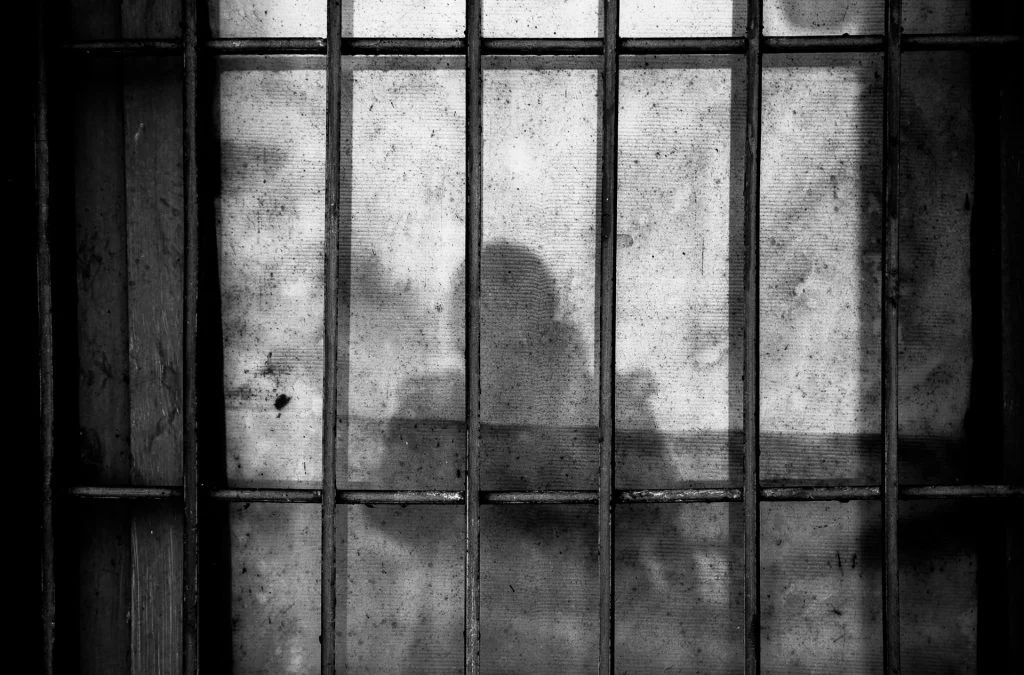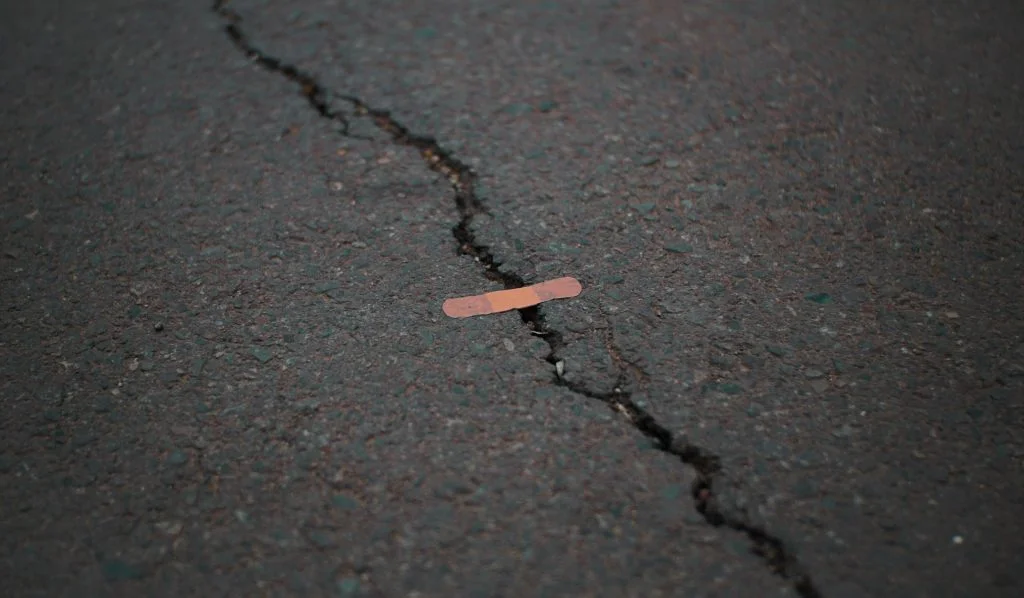Does Domestic Violence Show Up On A Background Check?

It’s common for employers in many sectors to see domestic violence charges as grounds for termination, suspension, or revocation of professional licenses.
The repercussions of a domestic violence conviction, including jeopardized future career opportunities or reduced access to housing options, can have long lasting consequences that affect your life. It’s crucial for those facing domestic violence charges – whether they’re false or severe – to onboard experienced legal representation to build a strong defense.
In this blog post, we’re going to explore how a domestic violence crime may show up in your background check and why you need to contact a criminal lawyer as soon as possible.
How is Domestic Violence Prosecuted?
California domestic abuse law is governed by Penal code 273.5. Domestic abuse in the eyes of the law is considered bodily injury inflicted on a current partner, previous partner, cohabitant, or the parent of your child.
In many cases, a domestic violence conviction gets charged as a misdemeanor. There are situations where this charge becomes escalated to a felony, such as when you have previous domestic violence charges, when a minor is involved, or when there is serious bodily injury or sexual assault caused to the victim.
If you have a domestic violence offense in California, you’ll most likely answer to one of the two following charges.
Corporal Injury to a Spouse or Cohabitant
Corporal injury generally arises if the injuries inflicted result in a traumatic condition. Trauma, in this case, is classified as a wound or injury.

Slight bruising or a red mark can be considered traumatic. Emotional trauma is exempt from this charge, and the prosecutor must provide evidence of intent to cause injury.
Penalties for Corporal Injury
Corporal injury typically gets charged as a felony. If you’re convicted, you may serve up to 4 years in state prison – but this could be longer depending on the injuries imposed. In addition, you may have to attend mandatory domestic violence classes for up to a year.
If you’ve committed domestic violence or other sexual, weaponry, or attempted assaults in the last seven years, you may receive a longer prison sentence with fines of up to $10,000. Severe bodily harm to the victim may result in consecutive jail sentences.
Spousal Battery
According to the California Penal code, battery encompasses the willful and unlawful application of violence on a spouse. The victim is not required to produce visible injury for you to be found guilty.
Penalties for Spousal Battery
Generally, the spousal battery is charged as a misdemeanor. When somebody is convicted of domestic battery, the individual is required to pay a fine of $2000 and may face county jail time of up to one year, depending on the severity of the offense.
If your conviction occurs alongside other domestic violence or assault charges from the past seven years, it may result in more severe penalties.
On the other hand, an attorney could get these charges reduced to lower or no prison time. In this case, the courts may instead rule a probationary sentence.
Build Your Defense
When an individual gets accused of domestic violence, the implications of a criminal conviction can be severe. If you are falsely accused, it’s critical to recruit the experience of a legal attorney to give you the best defense case in the court of law and minimize the long-term implications of your trial.
Louis J. Goodman has practiced criminal law for over 30 years and has the experience and competency you need to build a strong defense case for your conviction.
If you’re facing severe or false domestic violence charges, speak with your domestic violence defense attorney at Louis J. Goodman today.
Are Domestic Violence Records Public in California?
Most domestic violence records are visible to the public. When someone files a court case in California, the courts keep an official record of the case. Information about you and the case may be made available in these documents. Unless the courts have made the case confidential, people can search and view public records.

In most instances, individuals can access these public records electronically at the courthouse or online from a device such as a tablet, smartphone, or computer.
Your case may be confidential, though generally speaking it will be available for public viewing on public record unless it involves a minor.
How Long do Charges Appear on your Criminal Record?
A misdemeanor offense is a wrongdoing or a crime. It will appear on your criminal record just as a felony conviction would. There is no “expiration date” for these convictions in California. That is to say, all misdemeanor offenses in California will stay on your record for life unless you have successfully petitioned to expunge the misdemeanor from your criminal record.
For felony or misdemeanor convictions, you may apply for expungement the day after your probation ends. If you have a charge with no probation, you are required to wait one year from the conviction to expunge the case.
Expungement is conditional on you not currently facing any criminal charges and not serving a sentence for a criminal offense at the time of application.
The California Seven Year Rule
Employers can access your criminal history once they’ve made a conditional offer of employment. However, according to the law in California, employers cannot access information about your criminal record that dates back more than seven years, with only a few exceptions.
This law means that convictions only in the last seven years will show up, and California employers cannot disqualify based on charges before that time.
Will a Domestic Violence Conviction Show Up Background Check?
If you are applying for employment, a place of residence, and in some cases, a state license, it’s common for administrators to run a background check. When you’re convicted of a domestic violence crime, it’s natural to wonder “does domestic violence show up on my background check?”
Well yes, usually it does. The contents of background checks can vary significantly, depending on the information required by the person or company running the check.
Unless you have had your conviction expunged or you were convicted more than seven years ago, your charges will show up on a criminal background check.
Anybody running a criminal background check in California is required to do the following in advance of their inquest:
- Provide written notice that a background check and report may be required
- Obtain the applicant’s permission to conduct a background check via an authorization form
- Provide notice if the company plans to use the applicant’s associates as character references
- Notify the applicant if the information in the background check has influenced adverse hiring decisions.
Will Domestic Violence Charges Show up on a Pre-Employment Check?
If your domestic violence charge still shows up on your record, prospective employers will see it when they conduct a pre-employment criminal background check.
The person employing you may be able to see information such as:
- The criminal charge or charges
- The date it was filed
- Disposition of the case
- Offense level
- Information about the sentence
When it comes to domestic violence, employers may be more cautious about onboarding a convicted applicant.
The circumstances surrounding this event will usually influence the employer’s decision-making. However, according to the Ban the Box Law in California, employers cannot access any criminal conviction history in advance of making a conditional offer of employment.
California’s Ban the Box Law
California’s ban-the-box law prohibits employers from inquiring into the applicant’s criminal convictions – expunged or not – before making an offer of conditional employment.
Employers are only able to view an applicant’s criminal history once a conditional offer of employment has been extended.

Even after an employer has seen the criminal record, they cannot retract the proposal before making an individualized assessment. An individual assessment considers the nature and gravity of the offense, whether the crime has a direct and adverse impact on the specific job duties, and the time passed since the conviction.
Do Expunged or Sealed Records Show Up on a Criminal Background Check?
When the courts expunge the record of a conviction or trial, the case files become more limited from public access. It does not seal the record or prevent all disclosure. A sophisticated researcher will see that there was an arrest, a conviction, a period of probation – successfully served, and then the case dismissed.
Generally, sealed records cannot be disclosed in most pre-employment background checks, although certain exceptions apply for employment applications to law enforcement agencies, some government agencies, and some educational institutions. These outcomes may depend on the nature of your case and the results of your conviction.
If a significant amount of time lapsed passed between your case’s resolution and your decision to expunge it, convictions may continue to show up in criminal record databases until the systems are updated to reflect the expungement.
It’s best to seek guidance from a criminal defense attorney when you want to expunge domestic violence convictions from your criminal records.
Do You Have False Domestic Violence Charges?
Domestic violence charges can seriously impact your current or future employment, applications for residences, and in some cases obtaining state licenses.
If you are facing severe or false domestic violence charges, the best way to fight it is to seek legal guidance from an experienced criminal attorney who can help you build a strong defense.
Louis J. Goodman is a California criminal lawyer who can help you fight any false domestic violence accusations or assist you in getting your records expunged. Don’t compromise your future as a result of these charges, contact the team at Louis J. Goodman today.
Request A Free Case Evaluation
Fields marked with an * are required
"*" indicates required fields



